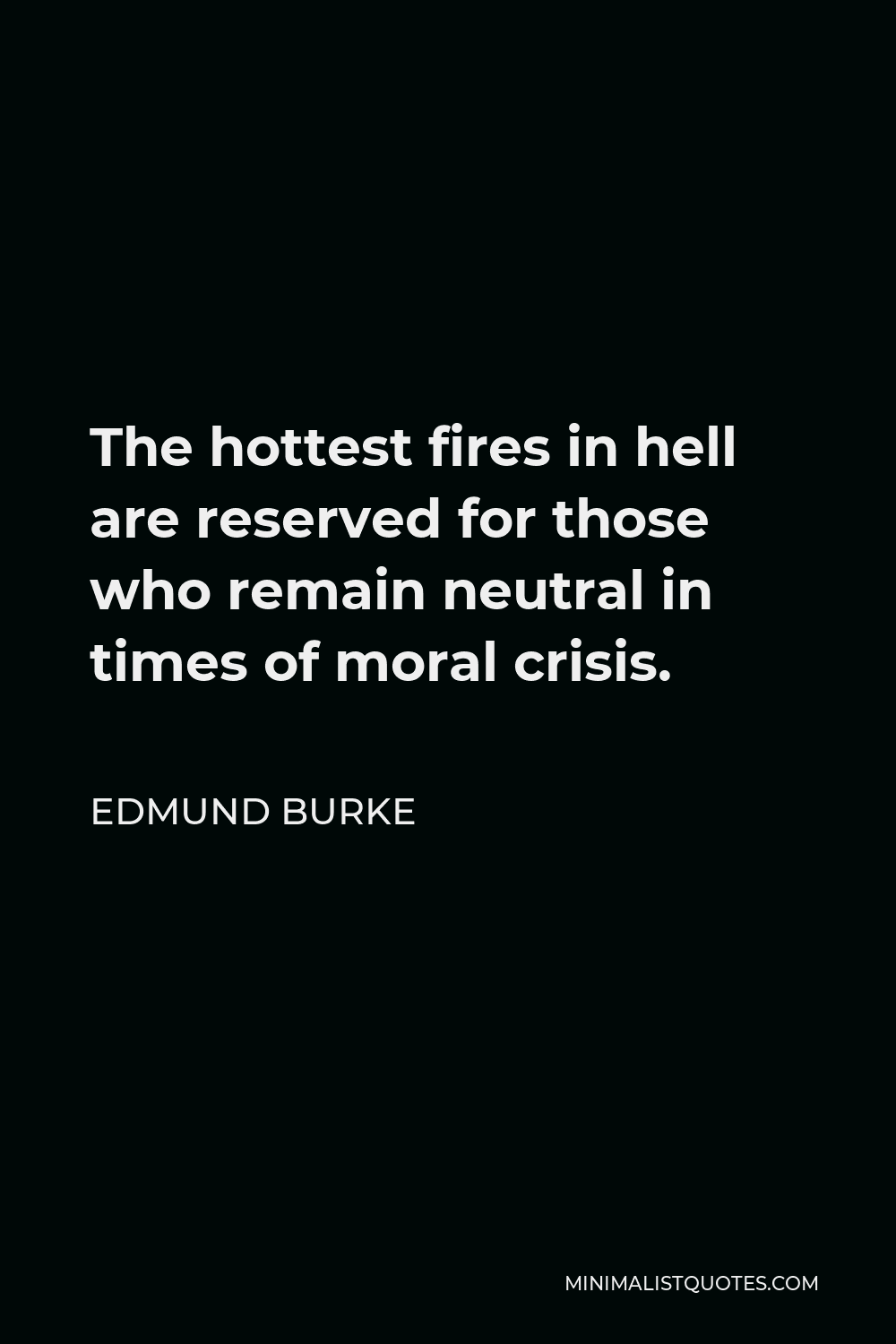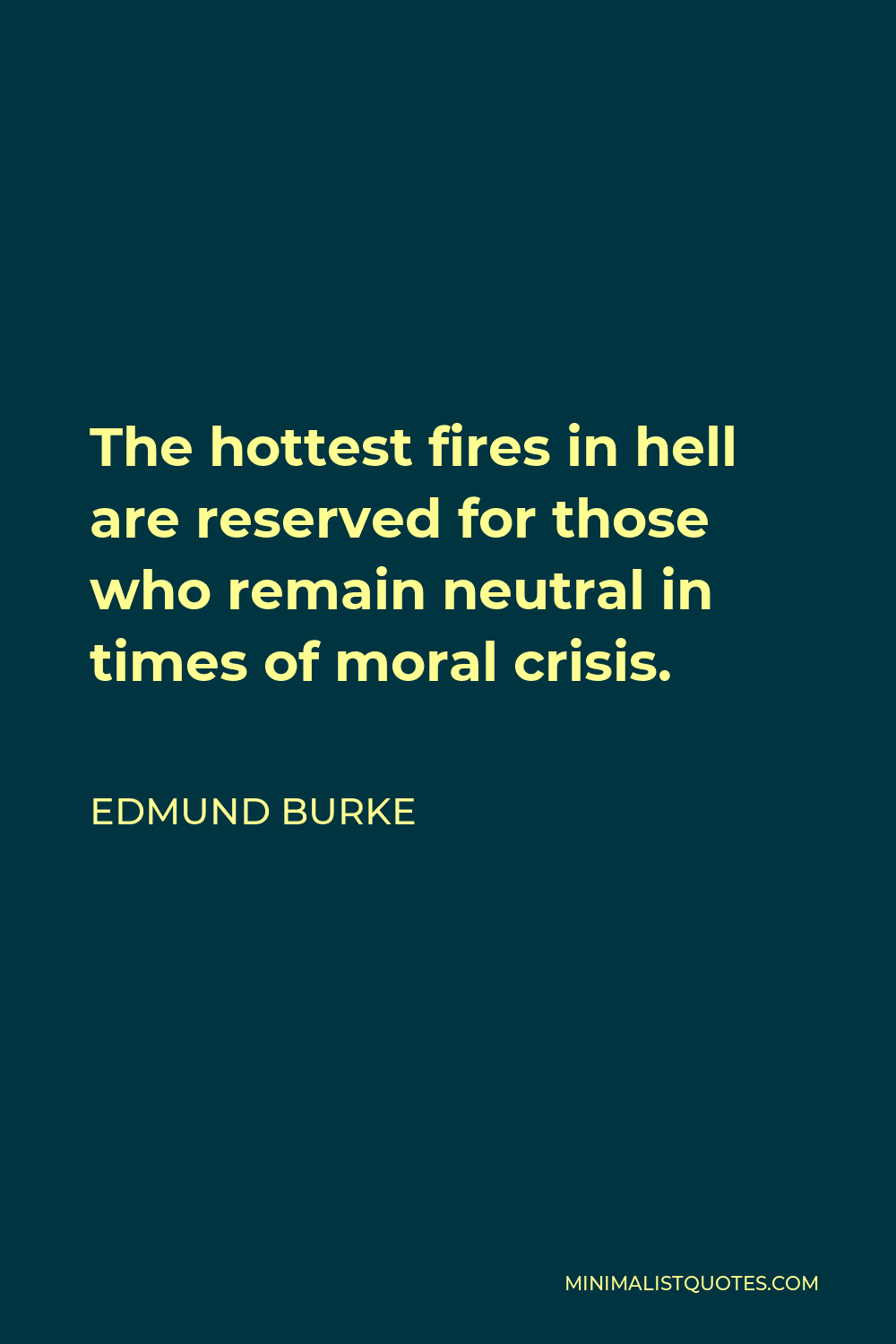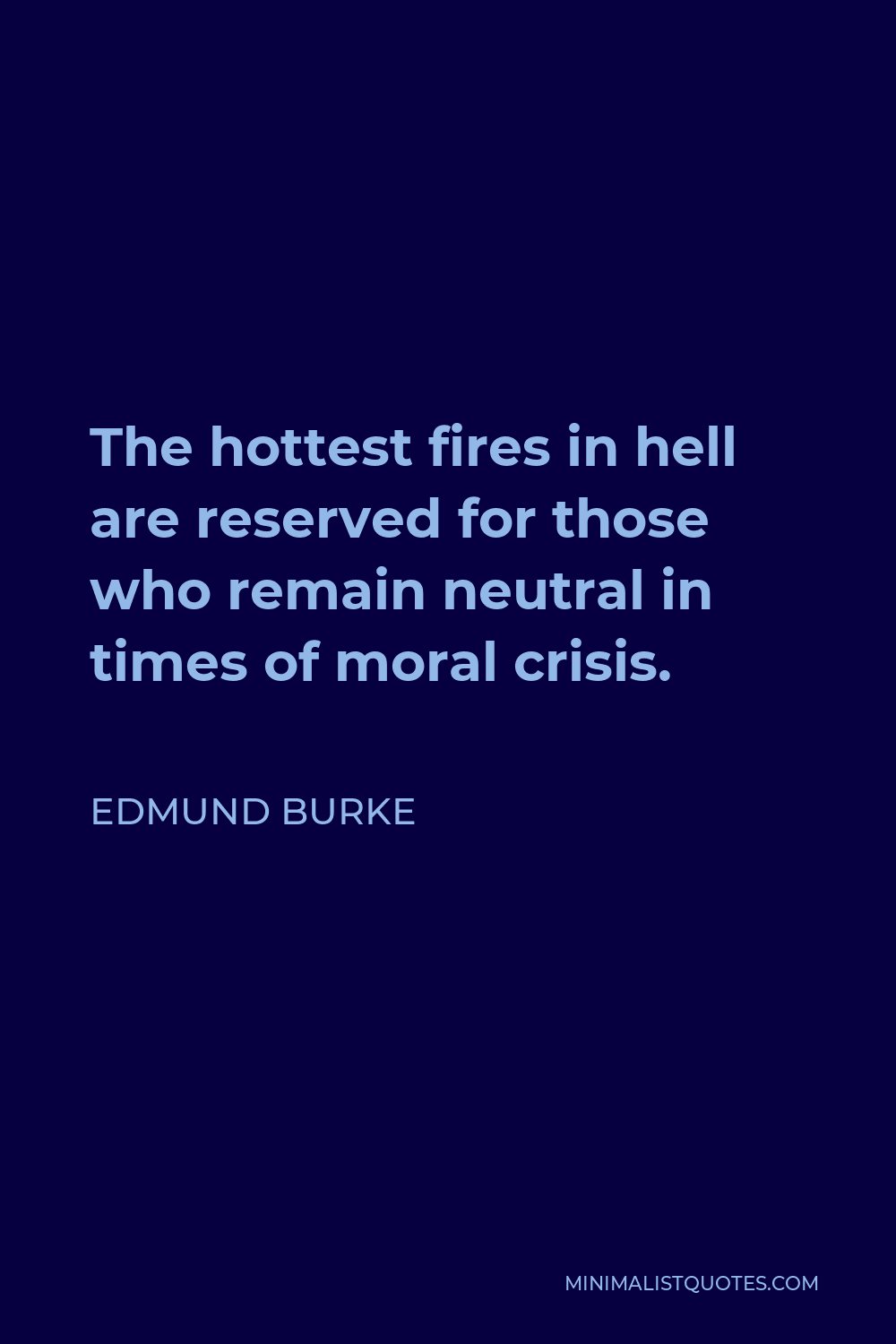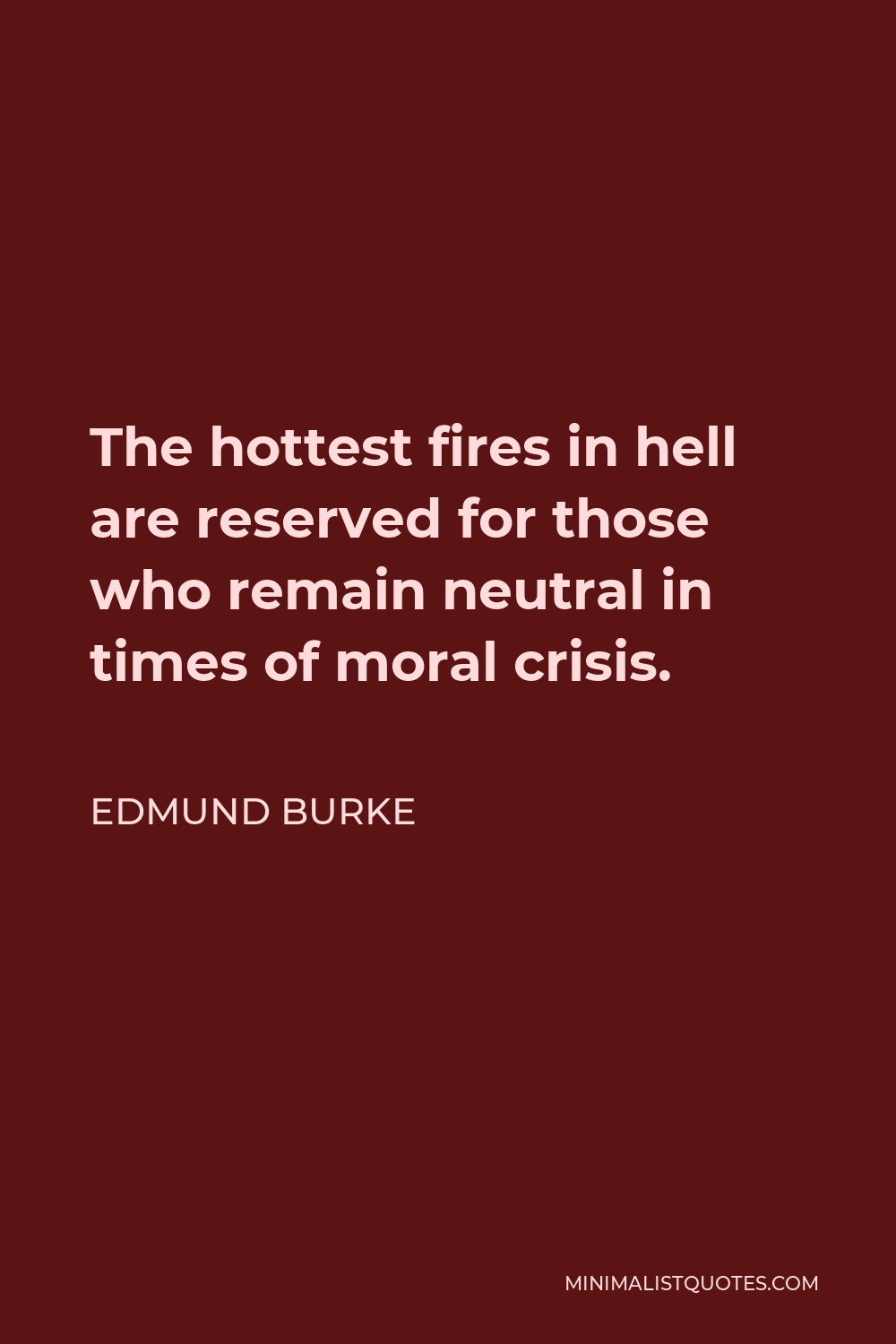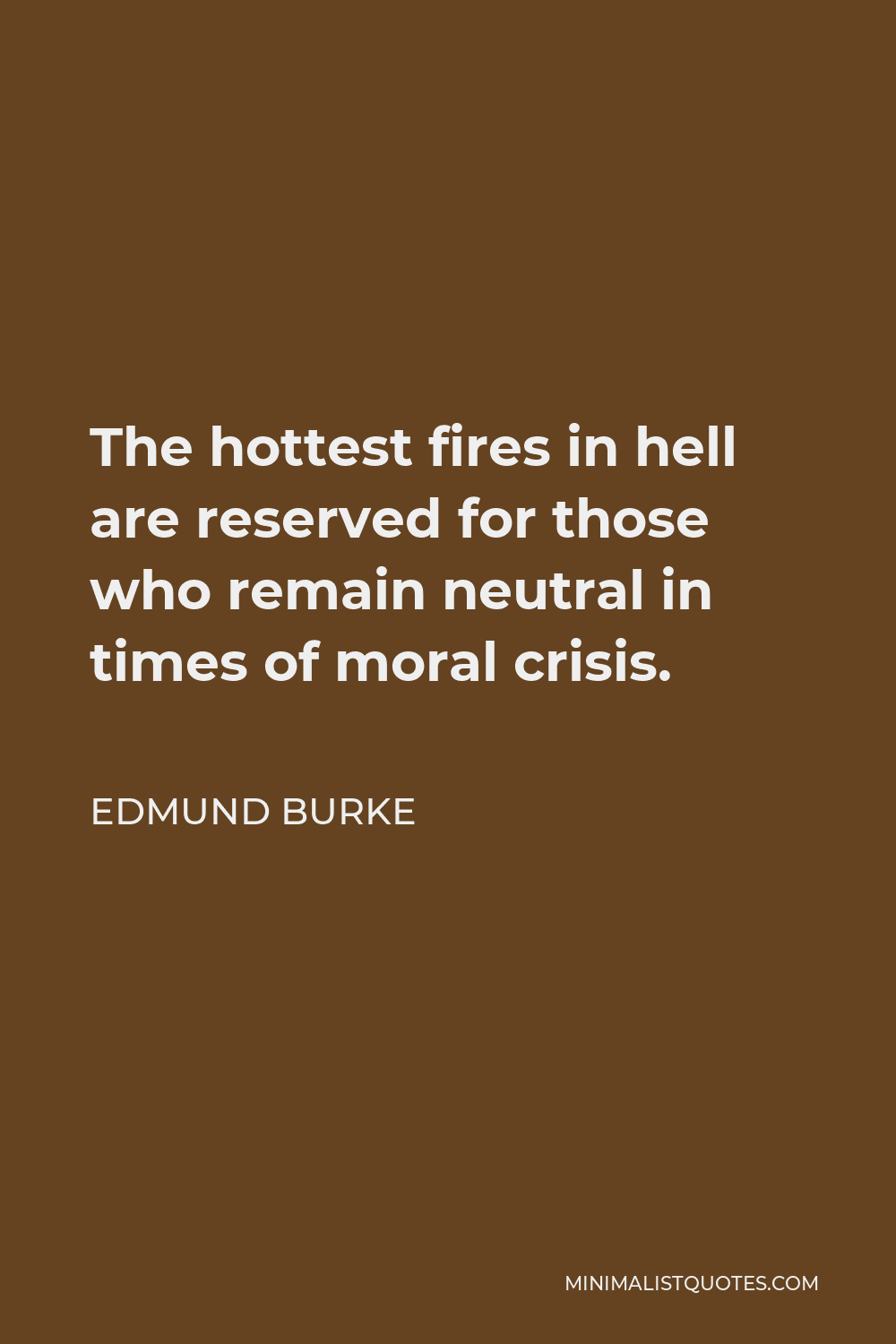Men who undertake considerable things, even in a regular way, ought to give us ground to presume ability.
EDMUND BURKEThe hottest fires in hell are reserved for those who remain neutral in times of moral crisis.
More Edmund Burke Quotes
-





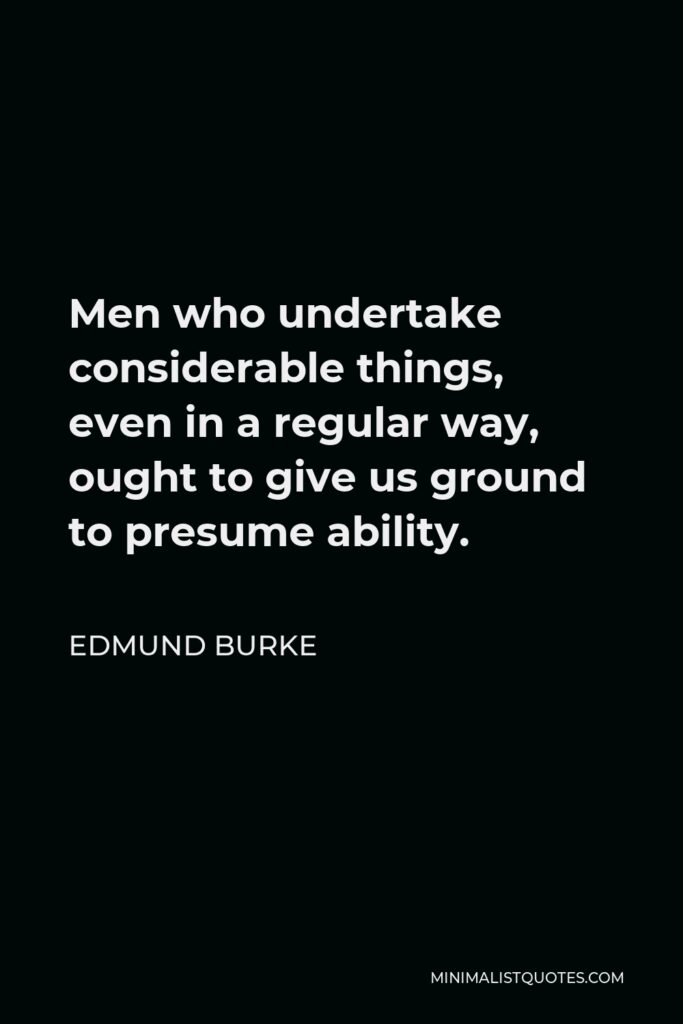

-





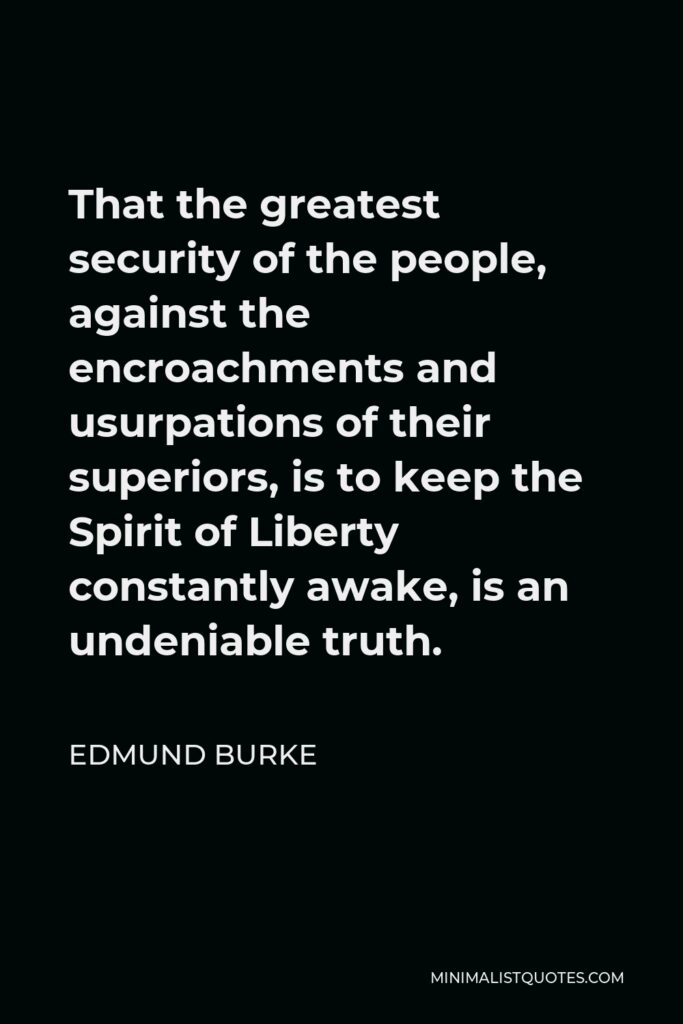

That the greatest security of the people, against the encroachments and usurpations of their superiors, is to keep the Spirit of Liberty constantly awake, is an undeniable truth.
EDMUND BURKE -





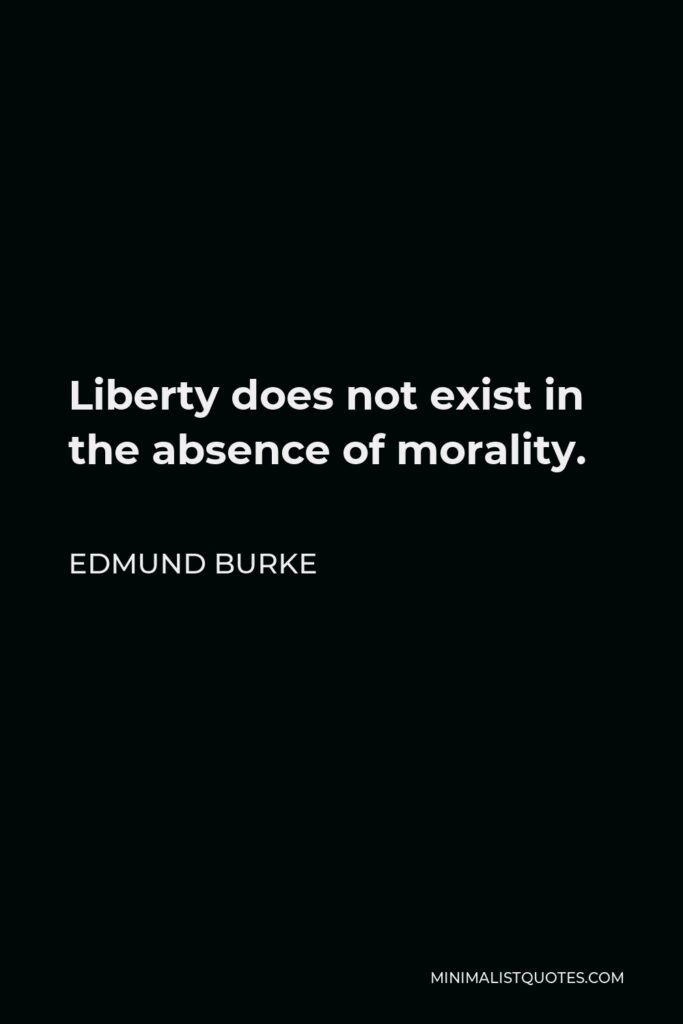

Liberty does not exist in the absence of morality.
EDMUND BURKE -





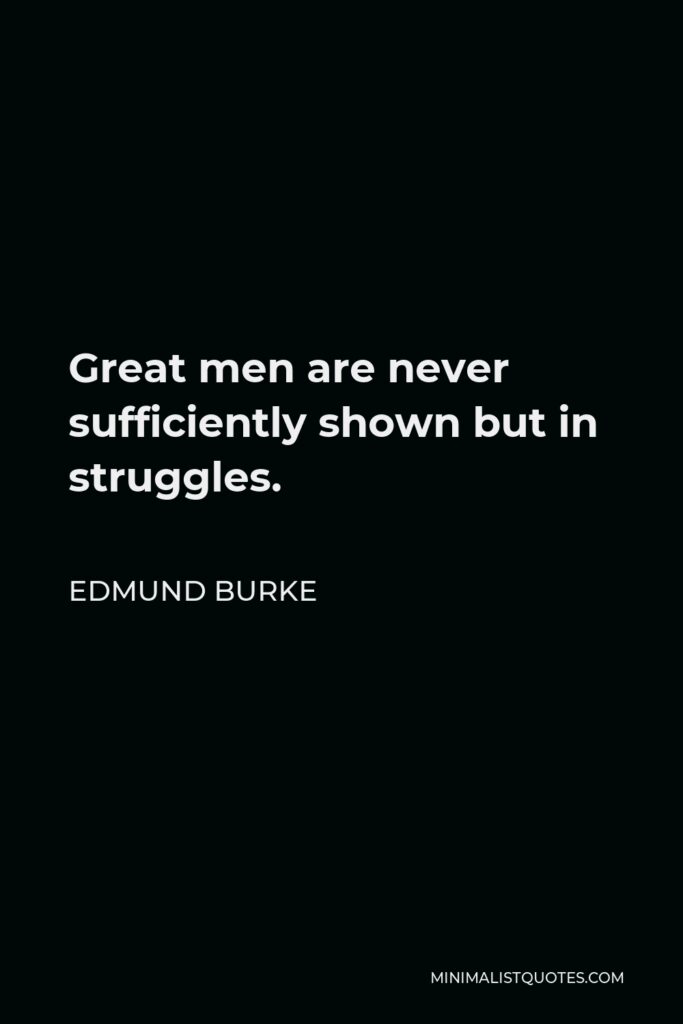

Great men are never sufficiently shown but in struggles.
EDMUND BURKE -





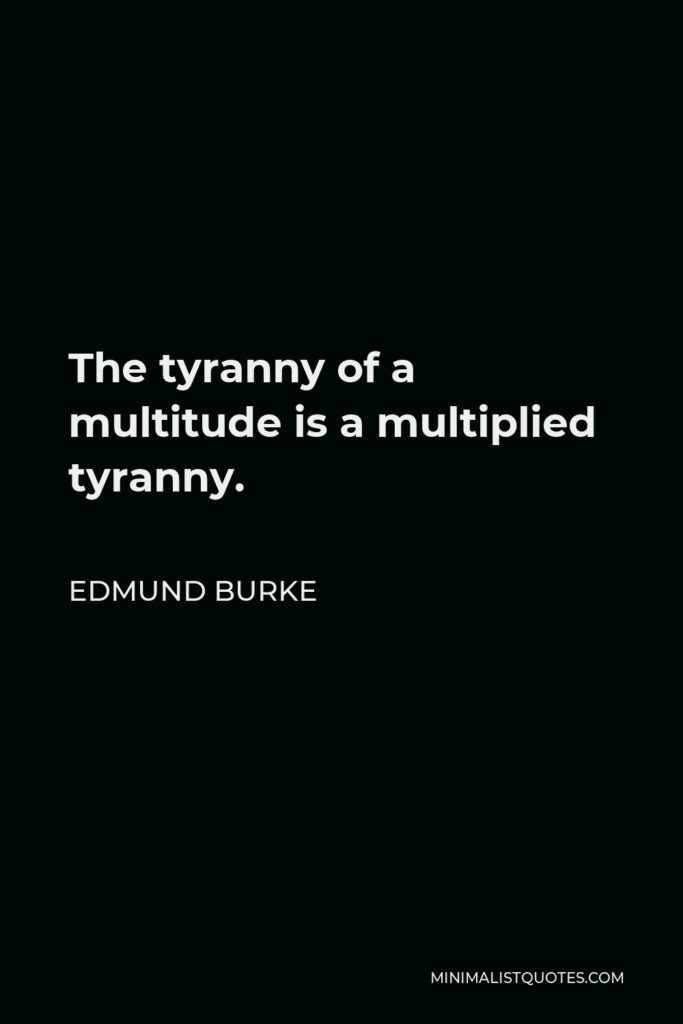

The tyranny of a multitude is a multiplied tyranny.
EDMUND BURKE -





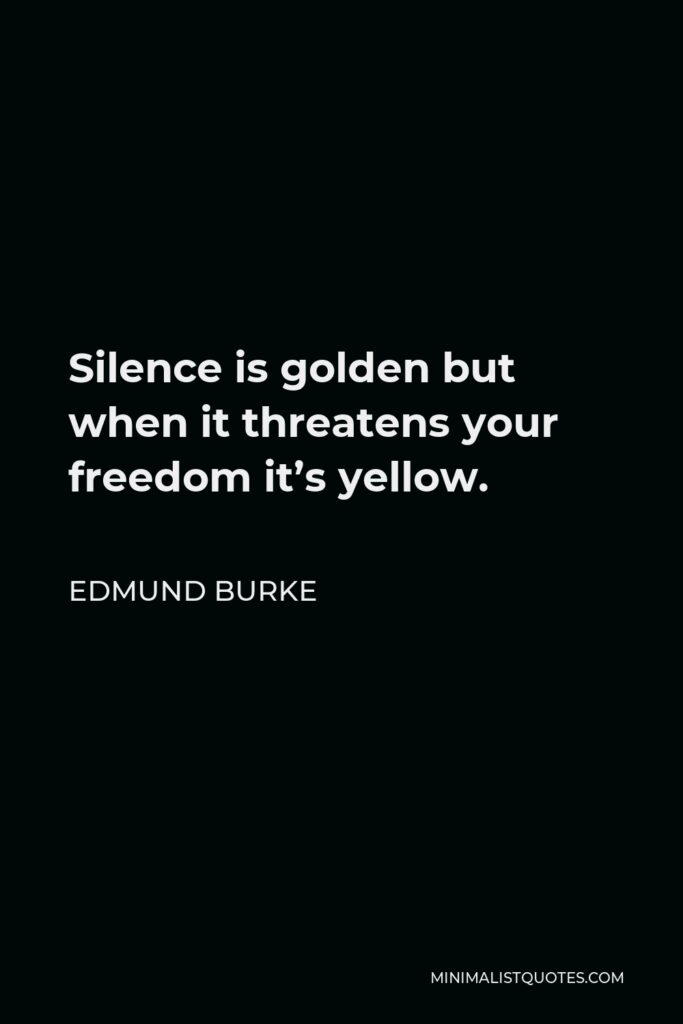

Silence is golden but when it threatens your freedom it’s yellow.
EDMUND BURKE -





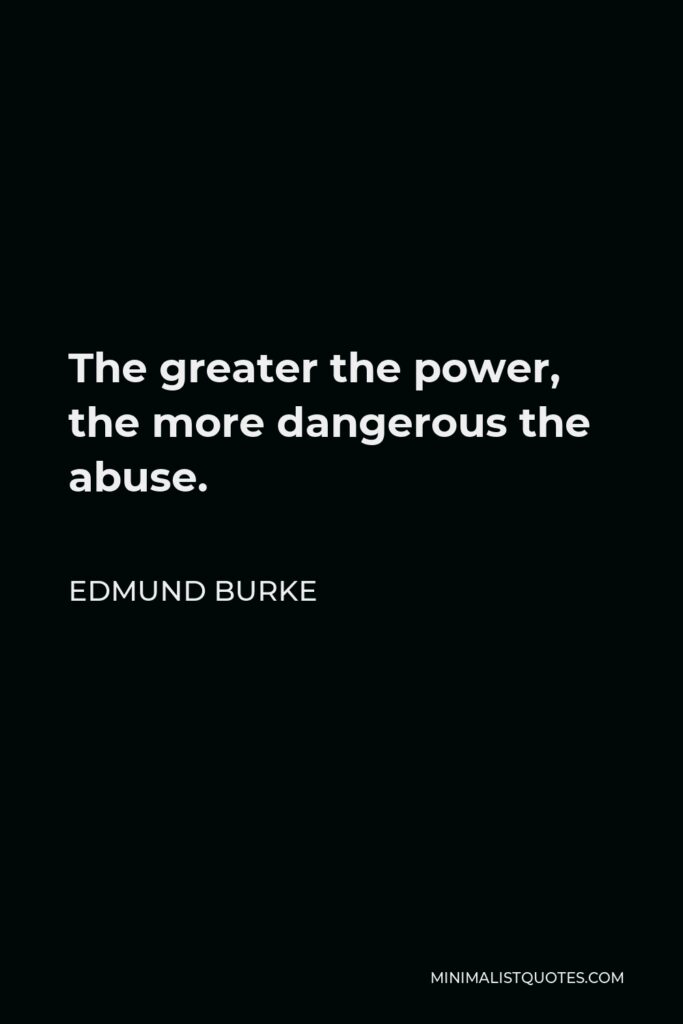

The greater the power, the more dangerous the abuse.
EDMUND BURKE -





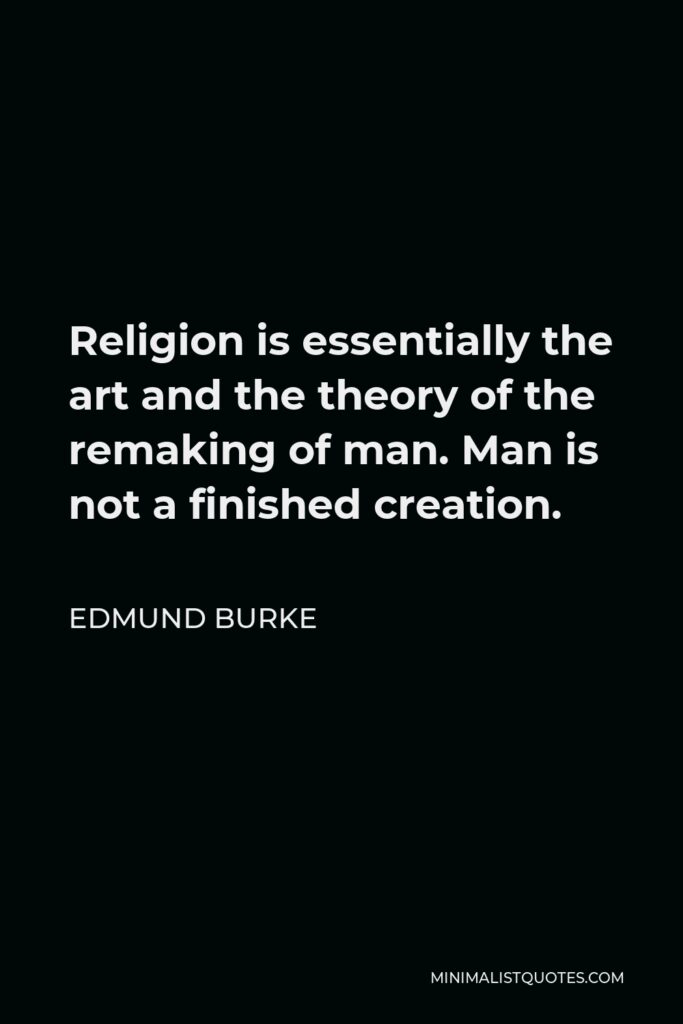

Religion is essentially the art and the theory of the remaking of man. Man is not a finished creation.
EDMUND BURKE -





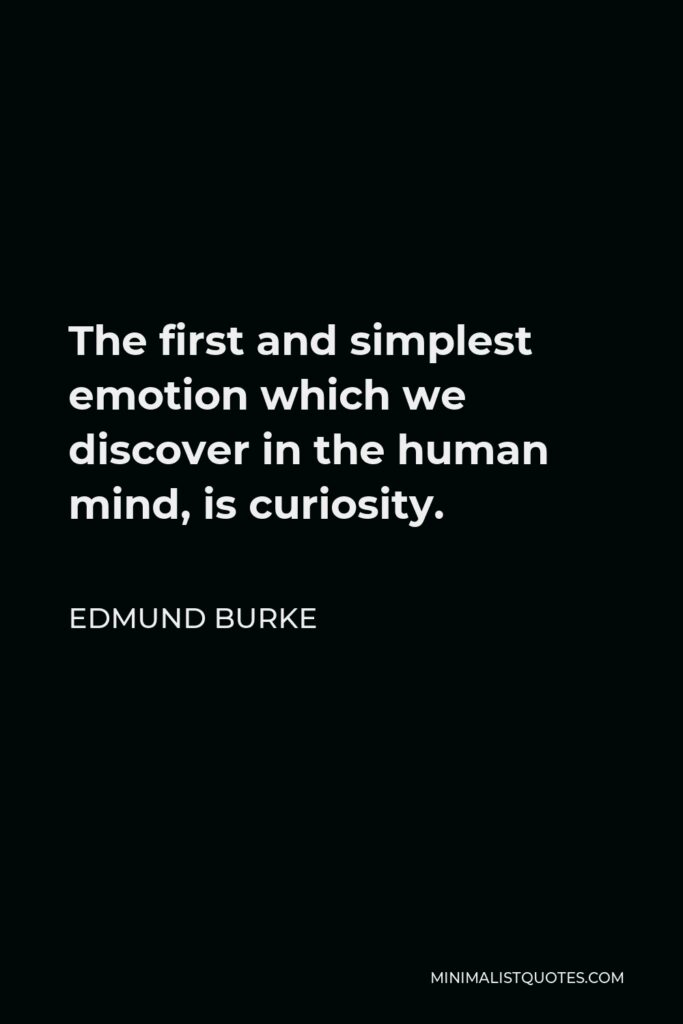

The first and simplest emotion which we discover in the human mind, is curiosity.
EDMUND BURKE -





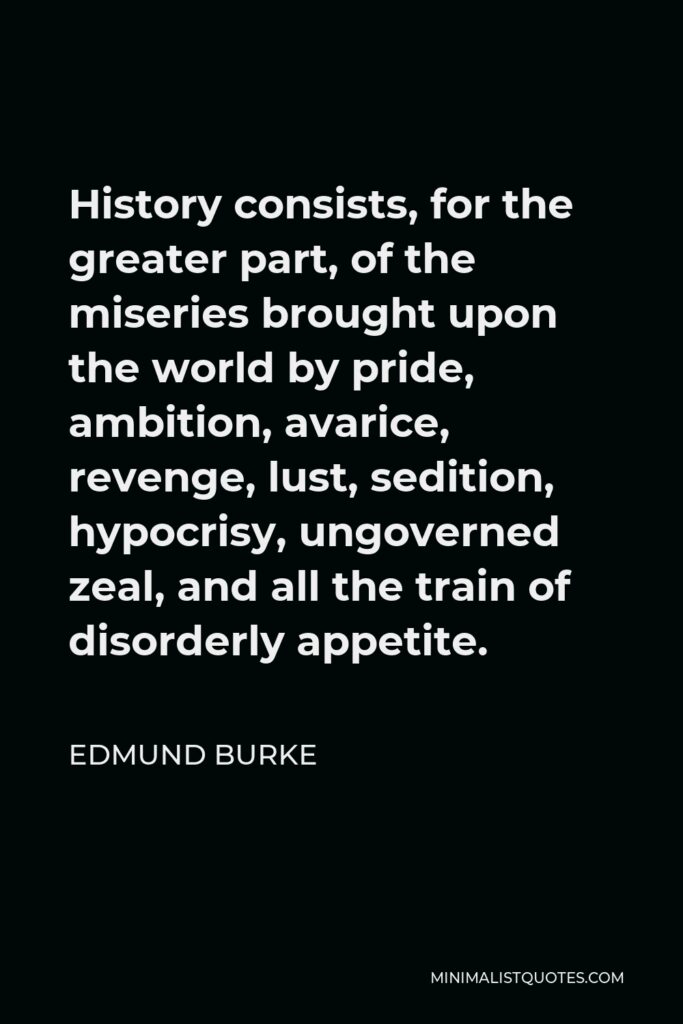

History consists, for the greater part, of the miseries brought upon the world by pride, ambition, avarice, revenge, lust, sedition, hypocrisy, ungoverned zeal, and all the train of disorderly appetite.
EDMUND BURKE -





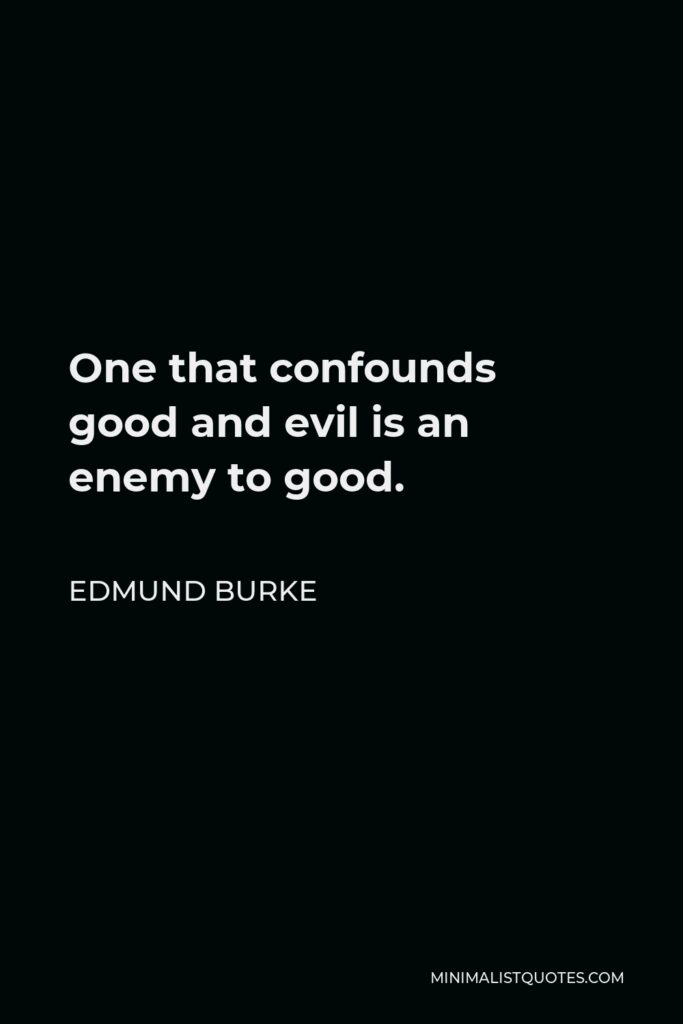

One that confounds good and evil is an enemy to good.
EDMUND BURKE -





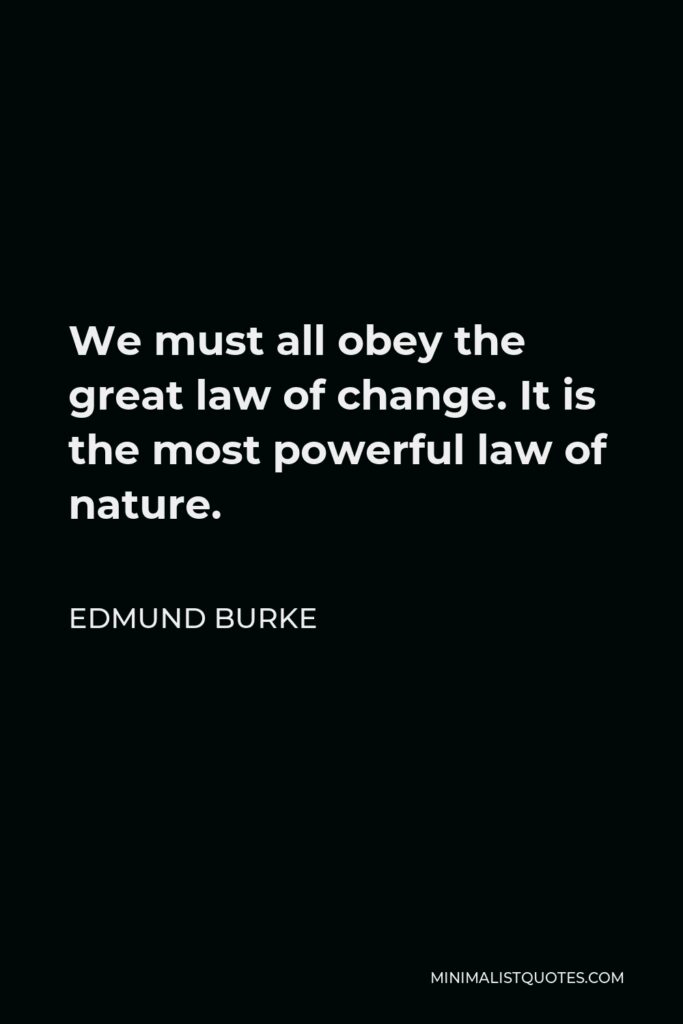

We must all obey the great law of change. It is the most powerful law of nature.
EDMUND BURKE -





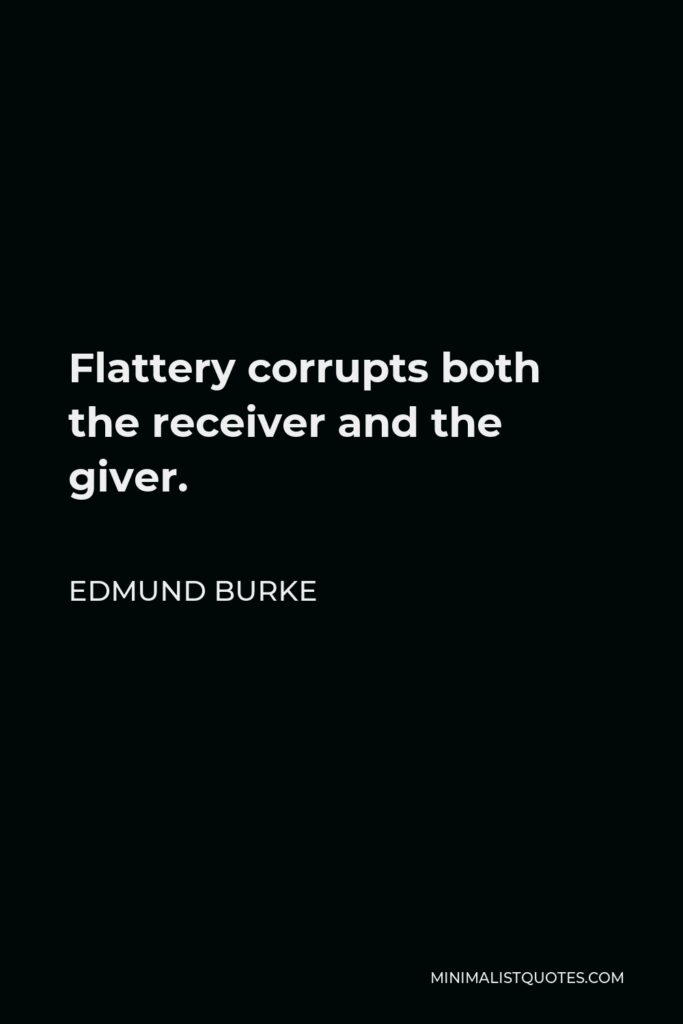

Flattery corrupts both the receiver and the giver.
EDMUND BURKE -





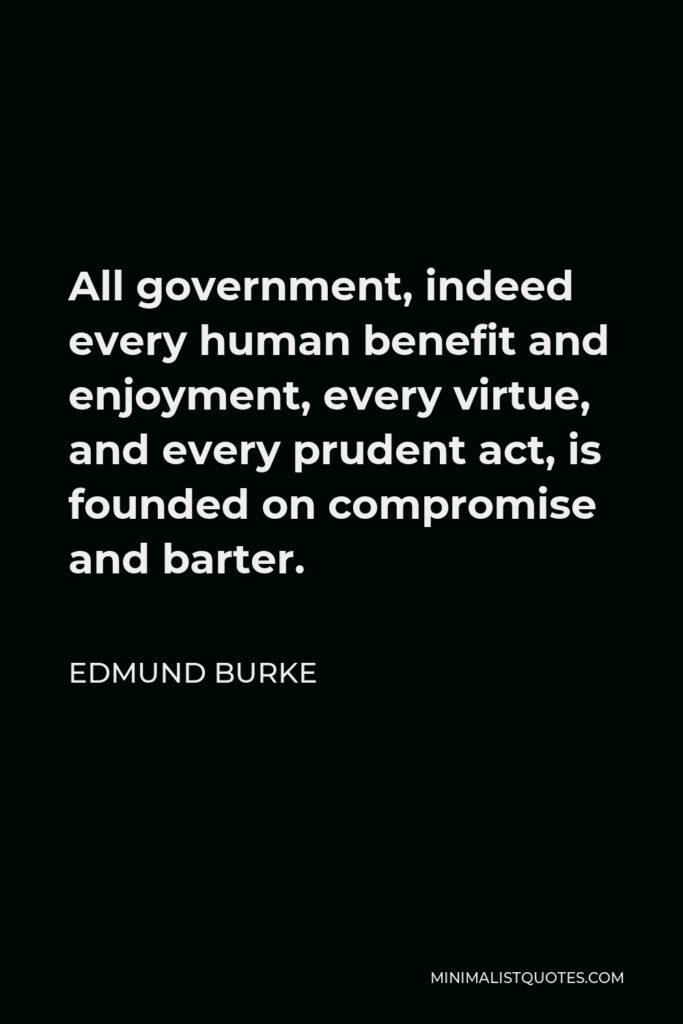

All government, indeed every human benefit and enjoyment, every virtue, and every prudent act, is founded on compromise and barter.
EDMUND BURKE -





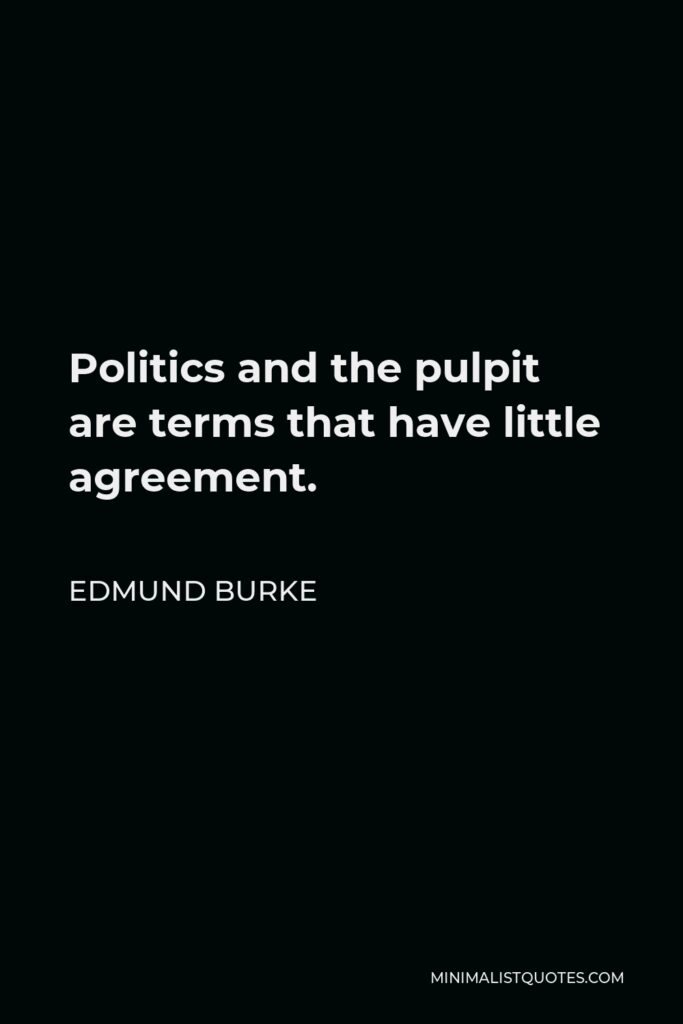

Politics and the pulpit are terms that have little agreement.
EDMUND BURKE -





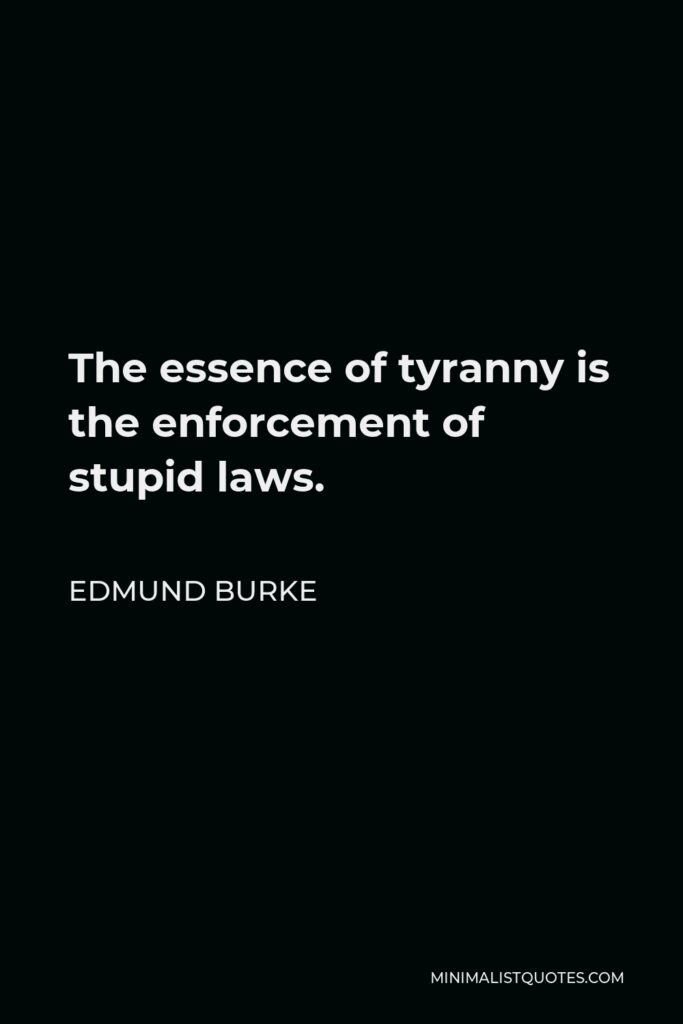

The essence of tyranny is the enforcement of stupid laws.
EDMUND BURKE
